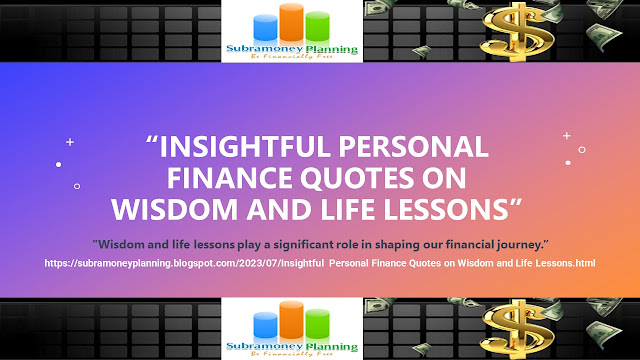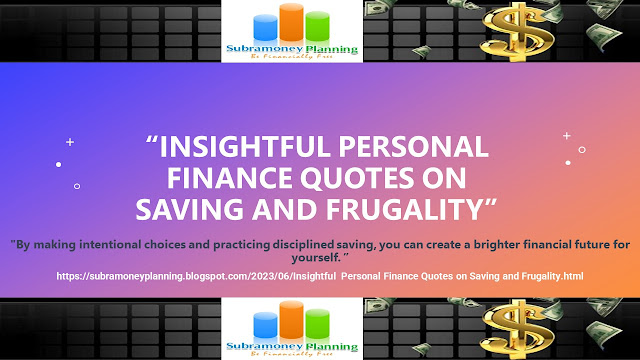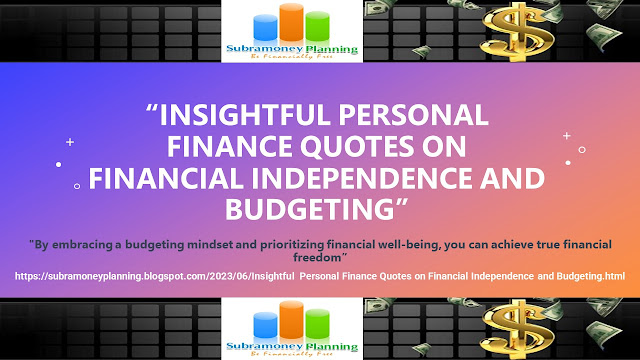"Unlocking the Power of PAN Card in India: Features, Advantages, Disadvantages, and Key Takeaways"
In India, the Permanent Account Number (PAN) card is a crucial document that serves as a unique identification number for taxpayers. It is issued by the Income Tax Department of India and plays a pivotal role in various financial transactions and compliance requirements. Whether you're a working professional, a business owner, or an individual looking to establish your financial identity, understanding the features, advantages, and disadvantages of PAN card usage is essential. We will also provide you with key takeaways that will help you navigate the realm of PAN card usage in India more effectively.
 |
| Unlocking the Power of PAN Card in India: A Comprehensive Guide Subramoneyplanning |
1. Understanding the PAN Card:
The PAN card is a ten-digit alphanumeric identifier that is unique to each individual or entity. It serves as a universal identification key for all financial transactions and interactions with the Income Tax Department. The key components of a PAN card include the cardholder's name, date of birth, photograph, and the PAN number itself.
The PAN card is mandatory for certain individuals, such as taxpayers, business entities, and foreign nationals who conduct financial activities in India. To obtain a PAN card, you need to apply through the designated online portal or authorized service centers.
2. Features of PAN Card:
a) Unique Identification Number: The PAN card assigns a unique identification number to each individual or entity, which is essential for accurate identification and tracking of financial transactions.
b) Validity and Portability: The PAN card has a lifetime validity, and the unique PAN number remains the same regardless of changes in personal details, such as name or address. This portability ensures consistency in financial records.
c) Linkage to Aadhaar Card: The PAN card can be linked with the Aadhaar card, which is a unique identification number issued by the Unique Identification Authority of India (UIDAI). This linkage facilitates seamless integration of various government schemes and services.
d) E-Filing of Income Tax Returns: The PAN card is a prerequisite for electronic filing of income tax returns. It streamlines the tax filing process and ensures accurate reporting of income and tax liabilities.
e) Financial Transaction Tracking: The PAN card enables the tracking of financial transactions, such as large cash deposits, high-value investments, and property transactions. It helps monitor financial activities and curb tax evasion.
3. Key components of a PAN card:
1. Cardholder's Name: The PAN card prominently displays the cardholder's name. This is the name registered with the Income Tax Department and is used for identification purposes in all financial transactions and dealings related to income tax.
2. Date of Birth: The PAN card also includes the cardholder's date of birth. This information helps establish the cardholder's identity and ensure accurate identification in various financial and tax-related activities.
3. Photograph: The PAN card features a photograph of the cardholder. The photograph serves as visual identification and helps establish the authenticity of the card. It allows easy verification of the cardholder's identity during transactions or when presenting the PAN card as proof of identity.
4. PAN Number: The most crucial component of the PAN card is the PAN number itself. It is a ten-digit alphanumeric identifier assigned to each individual or entity by the Income Tax Department. The PAN number is unique to each cardholder and serves as their permanent account number.
The PAN number is a ten-digit alphanumeric identifier, and each digit in the PAN number has a specific significance. Here is a breakdown of what each digit represents:
1. First three characters: The first three characters of the PAN number are alphabetic in nature and represent a sequence of alphabets. These alphabets are assigned based on different categories of taxpayers. For example, individuals may have alphabets like "A" or "P" as the first character, while entities like companies may have "C" as the first character.
2. Fourth character: The fourth character of the PAN number represents the type of holder of the PAN card. It can be one of the following:
- "P" for individual taxpayers
- "F" for firms
- "C" for companies
- "H" for Hindu Undivided Families (HUFs)
- "A" for associations of persons (AOPs)
- "T" for trusts
- "B" for bodies of individuals (BOIs)
- "L" for local authorities
- "J" for artificial judicial persons
- "G" for government agencies
3. Fifth character: The fifth character of the PAN number represents the first character of the cardholder's last name or surname in the case of individuals. In the case of entities, it represents the first character of the entity's name.
4. Next four characters: The next four characters are numeric digits, ranging from 0001 to 9999. These characters represent a sequence number, assigned based on the number of PAN card holders falling within a particular category in a given jurisdiction.
5. Last character: The last character of the PAN number is an alphabetic check digit, calculated using a mathematical formula. It is used for verification purposes and helps detect any errors or discrepancies in the PAN number.
By understanding the significance of each digit in the PAN number, individuals and entities can easily identify the category of the PAN holder and ensure the accuracy of the PAN number during various financial and tax-related transactions.
It's important to note that the PAN number should be kept confidential and shared only with authorized entities for legitimate purposes.
The PAN number is a crucial element in all financial transactions, including filing income tax returns, making investments, opening bank accounts, and conducting high-value transactions. It acts as a universal identification key, linking all financial activities of an individual or entity to their PAN card and income tax records.
The PAN number is often required to be quoted in various forms and documents, such as tax returns, tax deduction certificates, and financial transaction forms. It helps in accurate tracking and reporting of financial activities, ensuring transparency, and aiding the Income Tax Department in monitoring tax compliance.
4. Advantages of PAN Card:
a) Financial Identity and Compliance:
• Identification for Income Tax Purposes: The PAN card acts as a primary identification proof for income tax-related activities, such as filing tax returns, paying taxes, and communicating with tax authorities.
• Mandatory for Certain Financial Transactions: The PAN card is mandatory for various financial transactions, including opening bank accounts, investing in securities, purchasing real estate, and conducting high-value transactions.
• Prevention of Tax Evasion: The PAN card plays a crucial role in curbing tax evasion by maintaining a trail of financial activities and ensuring individuals and entities are accountable for their tax liabilities.
b) Banking and Financial Transactions:
• Opening Bank Accounts: The PAN card is required to open bank accounts, both savings and current, enabling individuals to carry out day-to-day financial transactions smoothly.
• Investment in Securities and Mutual Funds: To invest in stocks, bonds, mutual funds, and other financial instruments, individuals need a PAN card for accurate identification and tax reporting.
• Obtaining Loans and Credit Cards: Banks and financial institutions often require PAN card details to process loan applications and issue credit cards, ensuring transparency and compliance.
c) Employment and Professional Requirements:
• Employment and Salary-related Compliance: Employers need the PAN card details of their employees to deduct taxes at source, issue Form 16 (income tax certificate), and comply with statutory regulations.
• Professional Consultancy and Services: Many professionals, such as chartered accountants, lawyers, and consultants, require a PAN card to conduct their professional practice and provide services to clients.
• Government Tendering and Contracts: PAN card details are essential for participating in government tenders, securing contracts, and complying with vendor registration requirements.
d) Government Subsidies and Benefits:
• Availing Government Subsidies and Schemes: The PAN card is often required to avail of various government subsidies, grants, and social welfare schemes, ensuring efficient distribution of benefits.
• Accessing Welfare Programs: The PAN card helps individuals access welfare programs such as health insurance schemes, pension schemes, and scholarships offered by the government.
e) International Travel and Remittances:
• Foreign Exchange Transactions: The PAN card is necessary for foreign exchange transactions, such as remittances, foreign currency purchases, and overseas investments.
• Income Tax Refunds for Non-Resident Indians: Non-Resident Indians (NRIs) can claim income tax refunds through the PAN card when they file income tax returns in India.
5. Disadvantages of PAN Card:
a) Mandatory Compliance and Obligations:
• Income Tax Filing Requirements: Holding a PAN card means fulfilling income tax filing requirements, including reporting income, deductions, and taxes accurately within the specified deadlines.
• Regular Updates and Reporting: Individuals and entities must keep their PAN card details updated and report changes promptly to ensure accurate compliance and avoid penalties.
b) Privacy and Data Security Concerns:
• Personal Information Exposure: The PAN card requires individuals to disclose personal information, which may raise concerns regarding data privacy and the potential misuse of personal data.
• Misuse and Fraudulent Activities: In some cases, individuals with access to PAN card details may engage in fraudulent activities, such as identity theft, financial fraud, or illegal transactions.
c) Administrative Challenges:
• Delay in Issuance and Updates: The process of obtaining a PAN card or making updates to existing details may involve administrative delays, causing inconvenience to individuals.
• Corrections and Reissuance Process: Rectifying errors or requesting reissuance of PAN cards due to loss, damage, or change of details can be a bureaucratic process that requires time and effort.
d) Limited Scope of Use:
• Restricted to Indian Financial System: The PAN card is primarily applicable to transactions and activities within the Indian financial system, limiting its utility in international contexts.
• Not a Proof of Citizenship or Residence: The PAN card does not serve as proof of citizenship or residential status in India. It solely establishes an individual's financial identity for tax-related purposes.
e) Misuse and Duplicate Cards:
• Risk of Duplicate PAN Cards: Instances of duplicate PAN cards being issued fraudulently pose a risk to the integrity of the system and may lead to fraudulent activities.
• Misuse for Illegal Activities: PAN cards obtained through fraudulent means can be misused for illegal activities, including money laundering, tax evasion, or identity theft.
Key Takeaways:
1. PAN card is a crucial identification document issued by the Income Tax Department in India.
2. It serves as a unique identifier for taxpayers and is essential for various financial transactions and compliance obligations.
3. The key components of a PAN card include the cardholder's name, date of birth, photograph, and the PAN number itself.
4. PAN card offers advantages such as establishing financial identity, access to banking services, and eligibility for government subsidies.
5. It is mandatory for income tax filing, opening bank accounts, investing in securities, and conducting high-value transactions.
6. PAN card helps in curbing tax evasion by maintaining a trail of financial activities and ensuring individuals are accountable for their tax liabilities.
7. Privacy and data security concerns may arise due to the disclosure of personal information on the PAN card.
8. PAN card has a lifetime validity, but it requires regular updates for any changes in personal details.
9. Administrative challenges and delays may occur during the issuance or updating process of PAN cards.
10. It's important to safeguard the PAN card to prevent misuse and fraudulent activities.
The PAN card is an indispensable document for individuals and entities in India. Its features and advantages, including financial identity, compliance requirements, and access to financial services, provide immense value. However, it's crucial to be aware of the potential drawbacks, such as compliance obligations and privacy concerns.
By understanding the intricacies of the PAN card system, you can leverage its benefits effectively while mitigating the associated risks. Remember to apply for a PAN card promptly, keep it updated, and safeguard it from misuse to ensure a smooth and compliant financial journey.
Disclaimer: This article is for informational purposes only and should not be considered as legal or financial advice. It is recommended to consult with professionals or authorized agencies for specific guidance related to PAN card usage in India.











